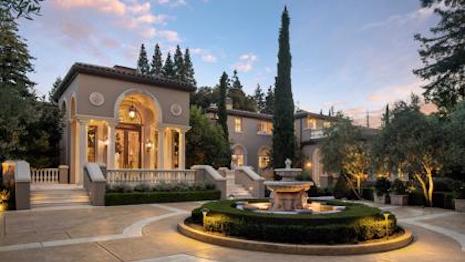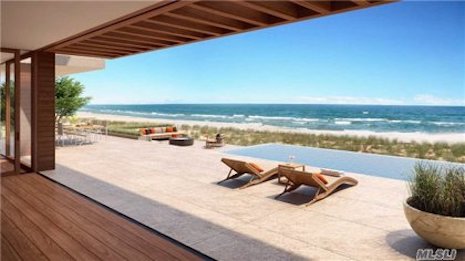 Home listed in Atherton, CA for close to $20 million. Image credit: PropertyShark
Home listed in Atherton, CA for close to $20 million. Image credit: PropertyShark
About three-quarters of the 125 priciest ZIP codes in the United States are located in California, driven by areas including San Francisco and Los Angeles. According to data from PropertyShark, Los Angeles County is the county with the priciest real estate, with 21 of the top 125 ZIP codes situated in the county, while the San Francisco Bay area is the priciest metro area with 55 of the most expensive ZIP codes. California also counts the most expensive ZIP code across the U.S., Atherton, where median home prices topped $7 million for the first time this year.
"There’s a myriad of reasons for California’s continually growing presence on our top of country’s 100 most expensive ZIPs, too many to expand on all of them, really," said Eliza Theiss, senior creative writer at PropertyShark and author of the report.
"But in broad strokes, it’s a combination, amongst other things, of the outsized influence of Silicon Valley, the state’s booming economy, lack of supply, especially in the starter home category, the continued influx of population that does not seem to be slowing down," she said.
"In our 2018 survey on generational differences on housing, California remains the number one dream destination for millennials and Gen Z, while our 2019 survey on adults aged 45 and over found that 6 percent of them want to retire in California, making California the fourth-most popular option after Florida with 25 percent, South Carolina with 10 percent and Arizona and Tennessee tied at 8 percent of respondents."
While a top 100 list, PropertyShark’s data includes 125 ZIP codes due to ties in median prices. Priciest property markets The top 125 priciest ZIP codes are concentrated in 11 states. California came out in the lead, retaining its number one position with 91 of the most expensive ZIP codes. Along with holding the priciest ZIP codes, California’s dominant metro areas have seen a surge in median prices. Over the last five years, the Los Angeles metro area’s costliest ZIP codes have seen median prices climb 40 percent, while San Francisco’s top ZIP codes have risen 20 percent. Coming in second behind California was New York with 18 ZIP codes in the top 100. New York’s top ZIP codes are concentrated in Manhattan and areas of Suffolk County near the Hamptons. However, indicative of the growing prices in New York’s outer boroughs, Brooklyn broke into the rankings for the first time with 11231, a ZIP code that includes Red Hook and Carroll Gardens, which saw median sales values rise 28 percent from last year to $1.45 million. Part of what led to Brooklyn's entry are new developments in the Carroll Gardens neighborhood and sales of single-family homes."In New York’s case, it’s very much a question of supply and demand," Ms. Theiss said. "Manhattan’s 10001 surged 71 percent year-over-year thanks to the success of Hudson Yards, which dethroned TriBeCa as the number one most expensive NYC neighborhood, after TriBeCa remained unchallenged for nearly two years.
"In New York’s case, numbers are very much influenced by new developments hitting the sales pipeline," she said. "ZIPs with a high concentration of new developments, especially luxury projects, may see their medians balloon temporarily in a specific quarter or year and then come back to more natural levels, but the new, much higher medians can also very much signal the new normal in a ZIP or neighborhood that is in the process of redevelopment or renewal."
New York State also boasts the second priciest ZIP code in Suffolk County’s Sagaponack, where median prices are about $4.3 million.
 $25 million listing in Sagaponack, NY. Image credit: PropertyShark
$25 million listing in Sagaponack, NY. Image credit: PropertyShark
"Real estate is very much an indicator of wealth and spending power, but definitely not the only one to consider," PropertyShark's Ms. Theiss said.
"For example, California may dominate our top 100, and it truly has some of the highest-quality luxury housing stock in the country – I’d even argue globally – but at the same time, it’s undeniable that a lot of Californians struggle with housing costs," she said.
"Should a luxury marketing professional want to make use of this data, the safe bet is to look at data from several years to identify longer-term trends, like stable luxury markets, or rising markets that are headed for luxury levels."
